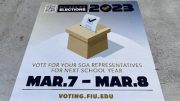Gillian Daley/ Contributing Writer
Race and the United States have been at odds since before the colonies joined together to form this nation.
The United States’ complex and problematic racial climate is difficult even for natural born citizens to properly—much less peacefully—process. Therefore, it must be infinitely more difficult for foreigners, expatriates and international students to understand, analyze and come to their own conclusions about America’s unique race politics.
It’s an unassailable truth that this country’s foundation has been constructed by means of the dehumanization and exploitation of generations of coloured people.
The earliest days of the New World involved a government sanctioned genocide of millions of First Nations people and the brutal enslavement of countless Africans and their descendants.
More recent history involved 120,000 Japanese Americans who were wrongfully held in concentration camps as part of the 1940’s war effort. Even later—after the revival of the Klan—came the slew of lynchings, murders and bombings that swept across the South.
This all leads us to 2017, the year in which thousands of White Nationalists stormed Charlottesville, VA. on a mission to spread their ideology of the clandestine superiority of the white race.
For some international students at FIU, last year’s polarizing election and the subsequent national unrest has made acclimatizing to America’s already tricky racial climate all the more complicated.
National talking points that divide the country—such as America’s incarceration of Black and Latino males, disturbing accounts of police brutality in Black communities and restrictive immigration reforms—are all topics international students might not have encountered before their move to the U.S.
Learning how to form opinions on these important issues and how to effectively and comfortably express those opinions are becoming increasingly important skills. It’s almost necessary for international students to develop these skills because in post-election America, our national news is almost always centered around issues or topics that touch on race.
More personally however, it’s almost impossible to avoid frank conversations about race at a minority-majority university like FIU.
Most importantly, it’s imperative that our international students be given every opportunity to fully and healthily adjust to America’s racial climate because they need to be able to find out how living here will affect their own identities.
America has a somewhat skewed psyche when it comes to matters of race. Living here could certainly have lasting effects on the way someone views themselves and the world around them.
Think about this for a moment: A Venezuelan living in Venezuela undoubtedly means something completely different than a Latino living in America. Being a Korean in Korea is utterly different than being an Asian in America.
International students might—and for some, it will be for the first time—have to deal with the culture shock of going from part of the ethnic, racial and religious majority in their own countries to having to be “othered” as a minority in this country.
On the other side of the spectrum, some international students might experience instances of relating to groups they might’ve not have formerly related to. For example, Haitian, Jamaican and Ethiopian foreign students might bond despite coming from different ethnic backgrounds because of the shared experience of being a black person in America.
In all, there are certain experiences, struggles and perspectives that international students of colour will face in America’s tumultuous racial climate that they wouldn’t normally have to undergo.
It’s imperative that we as a student body, and a community, work together to provide safe spaces and forums for international students to be able to better understand America’s race relations history, and therefore understand their place in America’s current socio-racial climate.
DISCLAIMER:
The opinions presented within this page do not represent the views of Panther Press Editorial Board. These views are separate from editorials and reflect individual perspectives of contributing writers and/or members of the University community.
Photo by rawpixel.com on Unsplash





Be the first to comment on "International students face complex issues when facing America’s racial politics"